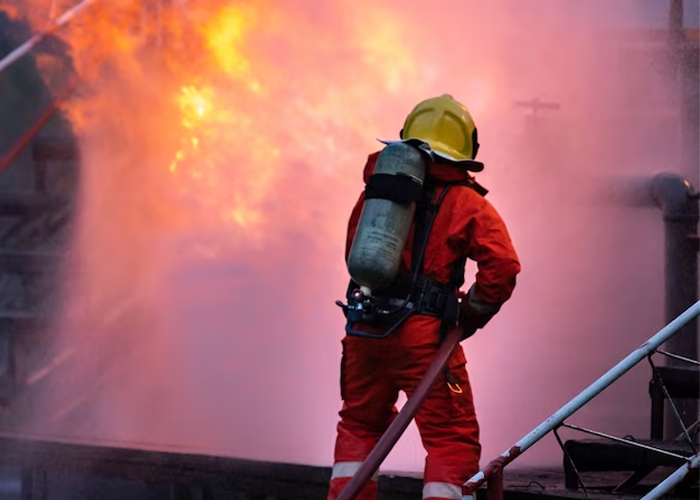Emergencies can happen anytime and anywhere. Natural disasters like fire, flood, earthquake, or severe weather can occur without warning and pose a significant threat to life and property. Among these disasters, fires can be particularly dangerous and destructive. Fires can spread rapidly, leaving little time for residents to evacuate their homes or businesses. That's why it's essential to prepare yourself and your family for such an emergency. This article will provide you with useful tips and guidelines on emergency preparedness for fire evacuations.
Why is Emergency Preparedness Necessary?
Emergency preparedness is crucial because it can make a difference between life and death during a disaster. It can also help reduce the impact of the disaster on your property, livelihood, and community. Being prepared can also help you stay calm and focused during an emergency and make the right decisions under stress. It's also important to understand that during an emergency, the emergency services may not be able to reach you immediately due to limited resources. Therefore, it's essential to have the necessary resources and knowledge to protect yourself and your family until help arrives.
Create an Emergency Plan:
The first step in emergency preparedness is to create an emergency plan. This plan should include information on how you will evacuate in case of a fire, where you will go, and how you will communicate with your family members during the evacuation. Your emergency plan should also include the location of important documents, emergency kits, and medical records.
Identify Emergency Exits:
Identify all the emergency exits in your home or building. Make sure that each exit is accessible and easy to open. You should also ensure that the exit routes are clear of obstructions and that everyone in your family knows how to use them.
Prepare an Emergency Kit:
Prepare an emergency kit that includes all the essentials you will need during an evacuation. Your emergency kit should include first aid supplies, medication, water, non-perishable food, a flashlight, extra batteries, a radio, and a whistle. You may also want to include a change of clothes, a blanket, and personal hygiene items.
Stay Informed:
Stay informed about the latest weather updates and emergency alerts in your area. Install a weather radio in your home and subscribe to local alerts and notifications. You can also download apps on your smartphone that provide real-time emergency alerts and updates.
Practice Evacuation Drills:
Practice evacuation drills with your family members regularly. These drills will help you identify any weaknesses in your emergency plan and ensure that everyone in your family knows what to do in case of a fire. It's also essential to practice different scenarios, such as evacuating from different rooms or floors.
Protect Your Property:
Protecting your property can help reduce the impact of a fire on your home or business. You can take several steps to protect your property, such as installing smoke detectors, fire extinguishers, and sprinkler systems. You should also ensure that your property has proper ventilation and that flammable materials are stored safely.
Stay Calm:
During an emergency, it's easy to panic and make mistakes. That's why it's essential to stay calm and focused. Take deep breaths and concentrate on the task at hand.. Remember that you have a plan in place, and you have prepared for this emergency.
Evacuate Early:
If you are told to leave, do so right away. Evacuate early to avoid being trapped by the fire. Don't wait for the last minute to evacuate, as this could put your life at risk.
Wear Protective Clothing:
Wear protective clothing during an evacuation if possible. Protective clothing can help protect you from heat, smoke, and falling debris. Wear long sleeves, pants, and closed-toe shoes. You should also wear a face mask or a cloth to cover your mouth and nose to protect your lungs from smoke.
Contact Emergency Services:
If you are unable to evacuate, or if you are trapped, call emergency services immediately. Provide your location and describe your situation. Have your mobile device nearby and fully charged..
Follow Instructions:
During an emergency, follow the instructions of emergency responders and local authorities. They are trained to handle emergencies and will provide you with the necessary guidance and support.
Stay Away from Power Lines:
Keep a safe distance from downed power lines. Power lines can be dangerous, especially during a fire. If you come across downed power lines, call the emergency services and report it.
Stay Informed After Evacuation:
After evacuating, stay informed about the latest updates on the fire and when it's safe to return to your home or business. Listen to local news and alerts for information on road closures, power outages, and other hazards.
Emergency preparedness is crucial to protect yourself and your family during a fire evacuation. By creating an emergency plan, identifying emergency exits, preparing an emergency kit, staying informed, practicing evacuation drills, protecting your property, staying calm, evacuating early, wearing protective clothing, contacting emergency services, following instructions, staying away from power lines, and staying informed after evacuation, you can reduce the impact of a fire on your life and property. Remember that emergencies can happen anytime, so it's essential to be prepared.

